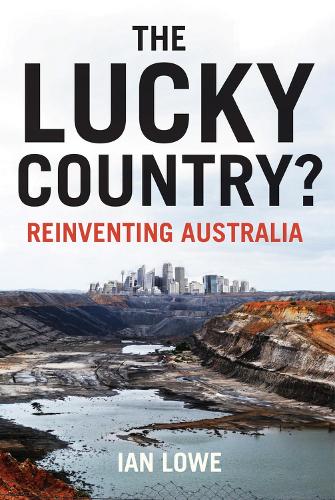
The Lucky Country Reinventing Australia
(Paperback)
Publishing Details
The Lucky Country Reinventing Australia
By (Author) Ian Lowe
University of Queensland Press
University of Queensland Press
28th March 2016
Australia
Classifications
General
Non Fiction
994.06
Physical Properties
Paperback
256
Width 154mm, Height 229mm, Spine 18mm
322g
Description
Can we reinvent The Lucky Country In 1964, Donald Horne described Australia as 'a lucky country run mainly by second-rate people who share its luck' in his iconic book.a Now, more than five decades later, internationally respected scientist and environmentalist Ian Lowe shows that little has changed after generations of short-sighted leadership. In his frank and fearless way, Lowe assesses the state of Australia in four key areas- our environment, population and society, geographical position, and unrelenting pursuit of economic growth.a Highlighting that the global economy and the environment are in crisis, Lowe illustrates the need u and the opportunity u to transform Australia into the world-leading model of sustainable development that we have the potential to become. A must-read, The Lucky Country Reinventing Australia challenges us all to consider the kind of future we want for our country and communities.
Author Bio
Professor Ian Lowe AO is emeritus professor of science, technology and society at Griffith University in Brisbane, as well as being an adjunct professor at Sunshine Coast University and Flinders University. His previous books include A Big Fix, Living in the Hothouse, A Voice of Reason: Reflections on Australia and Bigger or Better Australia's Population Debate. Professor Lowe has been a referee for the Intergovernmental Panel on Climate Change, the International Geosphere-Biosphere Programme and the Millennium Assessment. He attended the Geneva, Kyoto and Copenhagen conferences of the parties to the Framework Convention on Climate Change. He was a member of the Australian delegation to the 1999 UNESCO World Conference on Science and has served on many advisory bodies to all levels of government. He was president of the Australian Conservation Foundation (ACF) from 2004 to 2014, and in 2009 the International Academy of Sciences, Health and Ecology awarded him the Konrad Lorenz Gold Medal. He is a fellow of the Australian Academy of Technology and Engineering.
